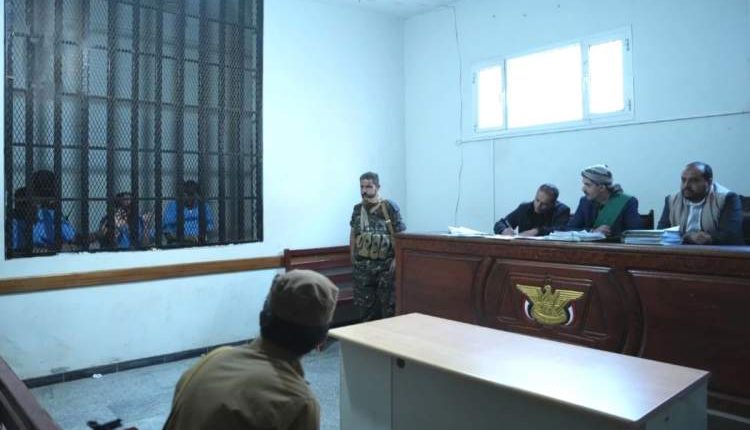Sana’a: Trial Begins for Spy Network Linked to Enemy Operations Room Based in Saudi Arabia
The Specialized Criminal Court in Sana’a began its first session today to try members of a spy network accused of operating under a joint operations room shared by the U.S. Central Intelligence Agency (CIA), the Israeli Mossad, and Saudi intelligence, headquartered on Saudi territory.
The session, presided over by Judge Yahya al-Mansour, with Prosecutor Abdullah Zahra and Deputy Prosecutor Sarem al-Din Mufaddal in attendance, included the reading of the indictments and confrontation of the 21 defendants with the charges and evidence presented in the case.
Charges and Allegations
According to the indictment, the defendants are accused of collaborating with foreign states hostile to the Republic of Yemen, including Saudi Arabia, the United Kingdom, and the United States, through Saudi, British, American, and Israeli intelligence officers who managed and directed them.
They were allegedly provided with encrypted communication tools, GPS-based tracking apps, and training in the use of covert cameras connected to live-streaming programs.
The network reportedly supplied the enemy with intelligence on state leadership locations and movements, as well as sensitive political, military, and security information.
They are also accused of recruiting and inciting citizens, planting surveillance cameras, and transmitting coordinates that led to the targeting of military, security, and civilian sites inside Yemen.
Espionage and Acts of Sabotage
The charges include destroying devices and evidence necessary to prove crimes against state security and defense secrets, and aiding the Saudi-led coalition in its war on Yemen by recruiting Yemeni operatives to collect military and political intelligence on:
Top- and mid-level leadership figures
Media and governmental institutions
Meeting venues and residential addresses
War production and storage sites
Additionally, they are accused of providing Saudi intelligence with data on missile systems, including their sources, launch and storage sites, assessments of domestic morale and cohesion, and reports on military commanders and meeting locations, in exchange for financial compensation.
Next Steps
Following the proceedings, the court granted the defendants time to prepare their defense, adjourning the trial to the next session for the presentation of their responses.
This case marks a continuation of Yemen’s broader effort to dismantle foreign-linked espionage networks and reinforce national security amid ongoing regional conflict and intelligence warfare.

